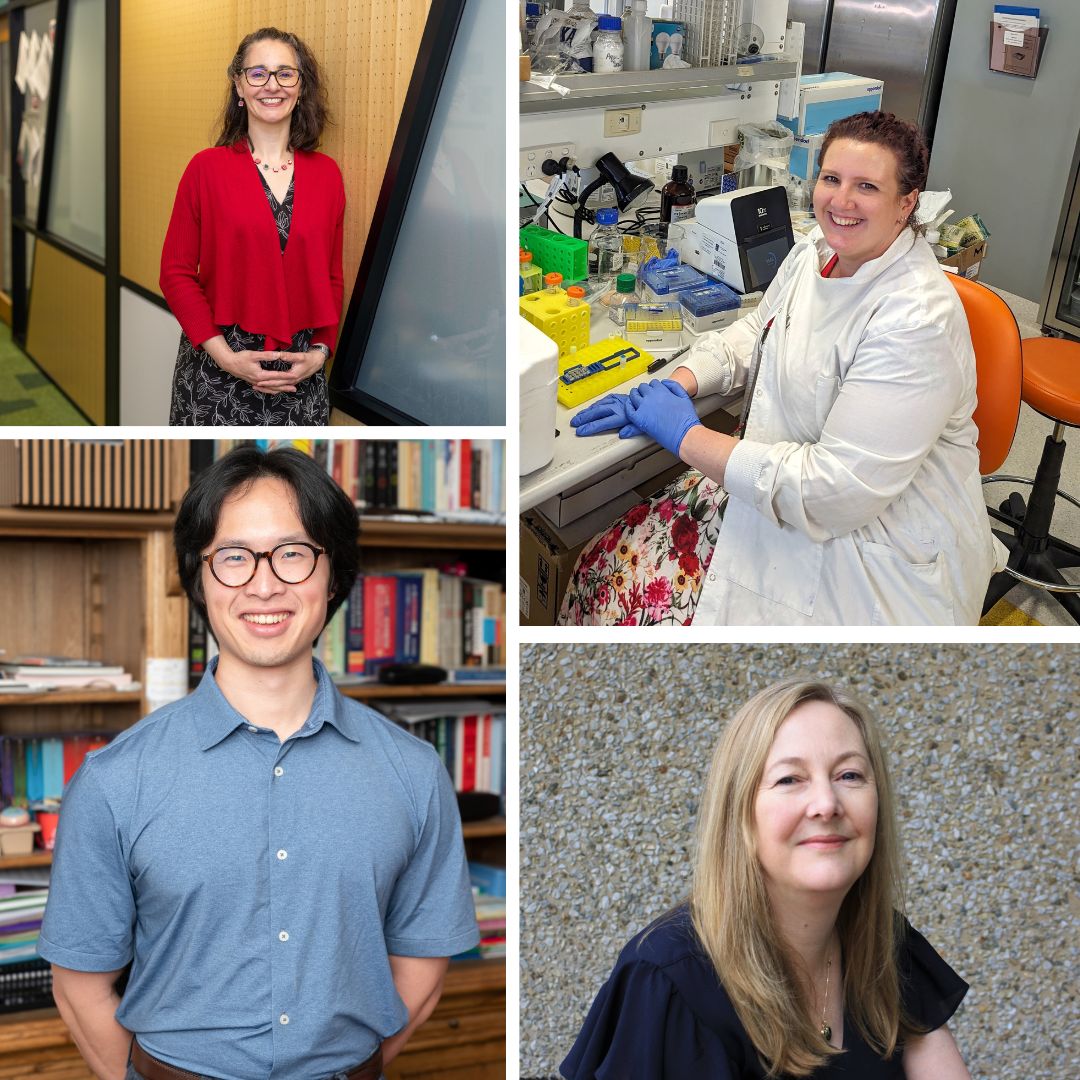In a $4.5m grant round aiming to fast-track the translation of research into real benefits for people living with multiple sclerosis (MS), four researchers from the Menzies Institute for Medical Research MS Research Flagship are amongst 17 to receive funding.
Dr Laura Laslett, Dr Jessica Fletcher, Dr Xin Lin and Dr Julie Campbell all received postdoctoral research fellowships from MS Australia for their cutting-edge projects that address a number of the MS community’s top priorities for research. These include determining causes and enabling prevention, better treatments and cures via repair and regeneration of cells.
Their grants bring a combined $900,000 in funding for MS research at Menzies.
About the projects
- Dr Laura Laslett (top left in the image below) will study the link between poor sleep and MS to understand how changes in sleep patterns affect overall sleep quality in people with MS and improve treatment and management of sleep issues in the MS community. Find out more about Laura's research project.
- Dr Jessica Fletcher (top right) is investigating why myelin, the coating around nerves, fails to repair in MS, building the knowledge base essential for the development of effective treatments to stop MS disease progression. Find out more about Jessica's research project.
- Dr Julie Campbell (bottom right) will measure the true economic cost of MS — including the quality of life impact in the years leading up to formal diagnosis of MS and the burden and costs to the informal carers and supporters of people living with MS — with the aim to increase resources for MS. Find out more about Julie's research project.
- Dr Xin Lin (bottom left) is integrating multiple biological data types and clinical data to identify MS biomarkers, molecules that reflect MS-specific biological processes and may serve as key targets for diagnostic and therapeutic innovations. Find out more about Xin's research project.
MS is the most commonly acquired chronic neurological disease affecting young adults who are often diagnosed between the ages of 20 and 40.
Alarmingly, MS prevalence is on the rise in Australia and worldwide at an accelerating rate, with over 33,000 Australians currently diagnosed.



